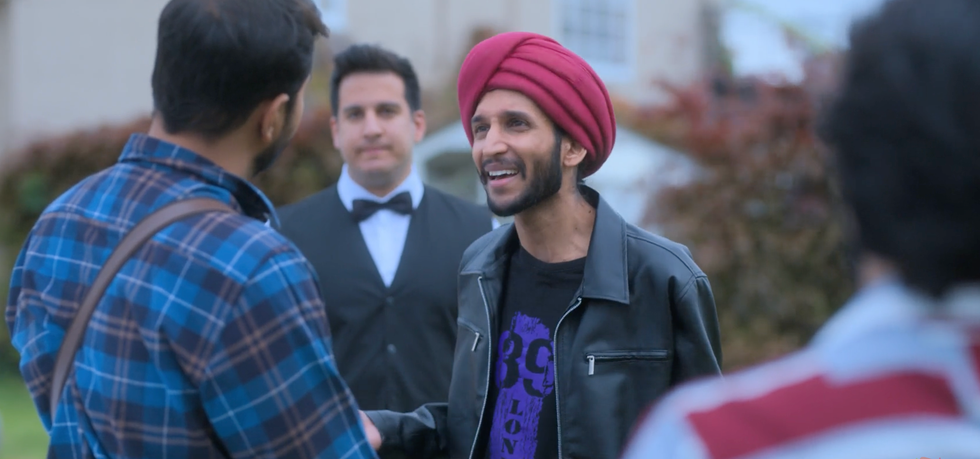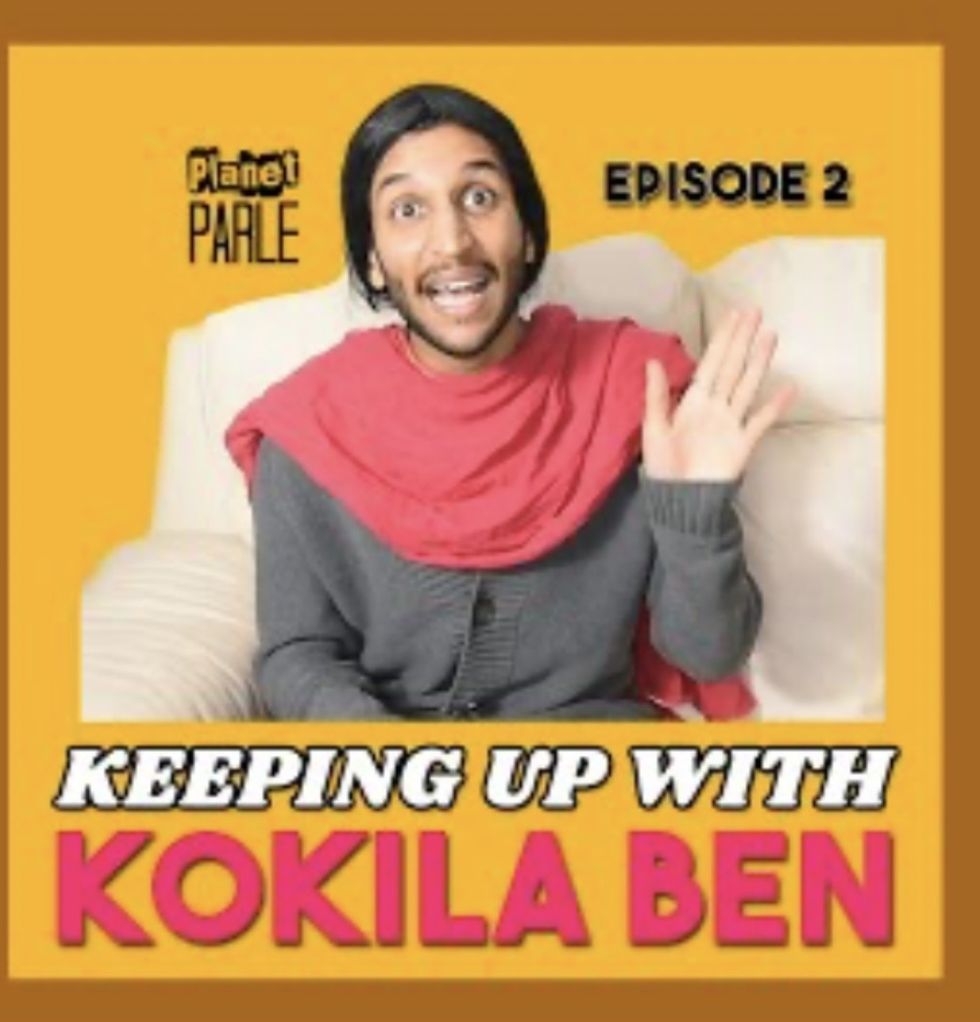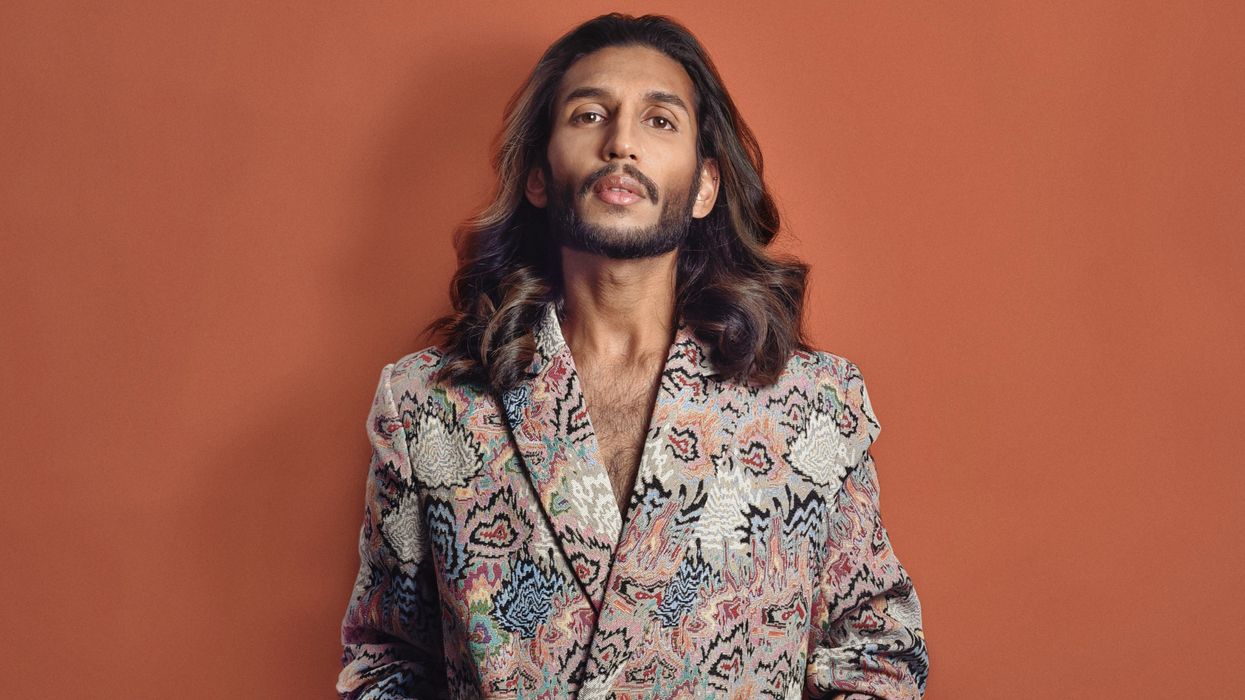Parle Patel has been a magnetic force in entertainment for nearly 15 years, combining laughter, language and layered identity into sketches, stage shows, radio and social media reels.
The “all-round entertainer”, best known as a fierce champion of Gujarati culture, has gained a loyal global following that spans from London to the heartlands of India.
This year, the popular British talent added another significant milestone to his creative journey by making a winning debut in Gujarati cinema with the film Umbarro. With a unique blend of humour, heart and heritage, Patel has added another huge chapter to an inspiring story of proudly representing his community.
Eastern Eye caught up with the great British hero to discuss his creative journey, film debut, inspirations and future plans..

How do you reflect on your creative journey?
I take stops throughout the year to reflect on what I have done creatively and see if it aligns with my values and aspirations. This includes time away from the UK to reflect. I also think about inspiring figures I look up to and see if I can build on what I have taken on board from them.
You have always championed Gujarati culture. How important is that to you?
My main aim was always to speak up for those not properly seen within our Gujarati community. I started making comedy because not enough was being said, explored or celebrated about us. After nearly 15 years, it is not just about ethnicity or religion, but about representing anything you feel is not seen or heard. Now, it is also important for me to celebrate other Gujarati artists and talent too, by highlighting them through my platforms.
You have done diverse work from the online space to theatre, but which has been closest to your heart?
All of them have bits of my heart. Each has helped me in different ways. YouTubing and being online showed me you can just start with yourself and build an audience – especially now, when people need that community. It built a worldwide audience. I never thought people in India would like my content, or that I would be doing shows in the US. And getting recognised on a tiny island in Thailand? The power of the internet is mind-blowing.
What about radio and theatre?
Theatre is just as good, but different. Hearing everyone laugh together, or the silence during a serious bit, is so raw and real. You know what has made them laugh. Online, you get ‘lol’, or emojis, which is not the same. Radio is another world, with just the voice. It is massively challenging making comedy or saying what I think without the face or acting. Each one is different, but they all fit together – like bits of me, Parle.
How does all your amazing previous work compare to working in a Gujarati film produced by a company from India?
With digital content, it is a one-man team, but in film, there is an entire cast and crew helping you stay energised. There are also random people or guests who have come to watch the shoot. So, it is a very different environment, where you really learn to focus with so much going on around you. The team was like a family – so warm and helpful. My fantastic director was so supportive. He never made me feel like this was my first feature film.
How did you feel when you got that film offer?
It was really exciting. To work for a director, Abhishek Shah, whose work I am immensely inspired by – like Hellaro, which was a superhit globally. Also, for this role, I had to specifically represent British Gujaratis, and that was going to be fun.

Tell us about Umbarro and your character.
The film follows the lives of seven Gujarati women from different walks of life, travelling to London on a tour. Each lady has a different backstory that needs healing. It beautifully shows that there is no one type of Gujarati woman and has a beautiful element of sisterhood. They help one another through issues like grief, loss and relationships, but also empower each other. I was playing Simran, a half-Punjabi and half-Gujarati. That was where the humour stemmed from. All our characters were on a journey, and had gender-neutral names, which is important when there is not that much representation.
What was your most memorable moment from this Gujarati film journey?
A few special things happened. What really struck me was how much the team persevered without ever complaining. Freezing night shoots, a 12th take – everyone just rallied with pure dedication to Gujarati storytelling. Then connecting with senior actors and legends, who knew my UK comedy stuff? It was heart-warming and humbling when they asked my opinion. The Northern Lights also appeared during a shoot, which felt like a sign and blessing. That was unforgettable.
How much do you love that Gujarati cinema has been on the rise?
I am so happy and grateful that directors in the industry have not given up or stopped. They are so passionate about the Gujarati language. For ages, I felt like the only one who cared. But then this ‘renaissance’ happened after that lull since the golden oldies. There is often a bias against our regional films. People say, ‘I cannot speak Gujarati, so I will not watch’, but they happily watch a series like Squid Game with subtitles. Surely, it’s about the story?
You have worked on so many different mediums and platforms. What is the plan going forward?
With so many things happening globally, I feel my audience is really hungry for more online content. People want to connect, feel a sense of community, and escape as well. In the beginning, I was almost told off for making escapist content. But I think it is important to help people escape the stresses of day-to-day life and laugh at relatable funny things. So, everyone is definitely going to see more online content. It is how people from remote locations get to connect with Gujarati language, comedy and culture.
What about other platforms?
I will go back to the stage in some capacity. I really hope to connect with people who want to collaborate and are also passionate about telling authentic stories – especially ones about British Gujaratis, Asians, Hindus and Indians here in the UK. There is so much more that is waiting to be told. I just want to keep representing.
Are you hoping to work in more films?
I would love to work in more films. I will always push myself and audition for roles that I feel I can play. I will always try my best to take training and learn more about each medium.
What inspires you creatively?
It can be a spark from anywhere. But proper inspiration comes from stories – my own life and family. During tough times, you remember the bad stuff, right? But later, you can choose how to look back – grief, drama or comedy. I pick comedy. It is a human superpower. Turning sad memories into funny ones, adding my ‘masala’. It may not be funny at first, but give it a day or two. That is being a comic – spinning the mundane. Loads of my videos are just everyday stuff, heightened a bit.
Tell us about the family aspect.
My parents are a massive inspiration. Dad put me in front of the camera first and taught me how to frame a shot. Mum has always been sharp, witty and has a love for Gujarati dance. I grew up around that. They are proper powerhouses, making me see the funny everywhere. My partner shows me the funny in stuff I would miss. Being with someone who loves comedy and theatre unlocks so much. We get through the mad times by just laughing.
Instagram: @planetparle




